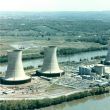The Middle East: Culprit for my nuclear security insomnia
By Nilsu Goren, May 22, 2016
What keeps me up at night—US East Coast time—is reading Turkey's morning news concerning Syria and Iraq. The insomnia is especially severe when my thoughts turn to nuclear security not just in Syria and Iraq but in countries throughout the Middle East.
All participants in this roundtable agree that, despite the achievements of the Nuclear Security Summits, the threat of nuclear terrorism is not necessarily diminishing. In the Middle East, nuclear terrorism seems a particularly immediate concern. True, the region lacks large quantities of highly enriched uranium and plutonium. But its political instability and its tendency toward violent extremism are conditions that can enable nuclear terrorism.
According to the 2016 Nuclear Security Index, published by the Nuclear Threat Initiative (NTI), Middle Eastern nations rank poorly when it comes to safeguarding their nuclear materials from theft. Of the 24 countries that possess at least 1 kilogram of weapons-usable nuclear materials, two are Middle Eastern: Israel and Iran. The Index ranks these countries near the bottom of the theft-protection list. Israel comes in at number 20 and Iran at 23.
Among the 152 countries with less than 1 kilogram of weapons-usable nuclear materials, about a dozen are Middle Eastern. They are all over the lot in their vulnerability to theft—from the United Arab Emirates at number 24 to Syria at 151 (just above Somalia). Clearly, the region's efforts to prevent nuclear theft are not strong enough.
Where vulnerability to nuclear sabotage is concerned, the Middle East does even worse. Of the 45 countries in NTI's sabotage index, five are Middle Eastern. Israel—the highest-ranking of the five—comes in at number 36. Iran is tied with North Korea for last place.
And as my roundtable colleague Hubert Foy has discussed, concern about nuclear materials is not limited to fissile materials. Radiological sources are also an issue of pressing concern. The Middle East's generally lax security environment, along with its political instability, makes the misuse of radiological sources more likely in this region than in many other places.
Civilian radiological sources are ubiquitous, particularly in medicine. They would be relatively easy to access in children's hospitals, for example. Luckily, most radioactive sources are not easily dispersible. Their half-lives are short. They could contaminate only limited areas. Moreover, anyone attempting to steal an unshielded source might die from acute radiation exposure. Still, using a radiological source in a "dirty bomb" could create panic and terror in local populations. A dirty bomb would turn affected areas into no-go zones for a number of years, which would have profound economic repercussions.
Another reason to be concerned about Middle Eastern nuclear security is the planned expansion of nuclear power in the region. Some nations, pointing toward Iran's limited right to enrich uranium under the Joint Comprehensive Plan of Action, will also wish to enrich uranium domestically. To be sure, such nations have the right to pursue the peaceful uses of nuclear energy, including uranium enrichment. But in order to alleviate international concerns about their enrichment capacity, these nations must develop robust laws regarding nuclear security. They must establish procedures for secure interim storage of nuclear materials. And they must make final disposition plans for spent fuel and radioactive waste.
The International Atomic Energy Agency can help with all of those tasks. It has the authority, resources, and expertise for the job. But a lot of work will nonetheless fall to state regulatory authorities. A key challenge will be for regulators to establish independence from political authorities. A key component of success, meanwhile, will be identifying nuclear security approaches appropriate to the region—via close cooperation between regulators and the nuclear industry. Here the Nuclear Security Summits can extend their legacy. The Nuclear Industry Summits that ran parallel to the Nuclear Security Summits offer a valuable model for including industry in the dialogue toward establishing good nuclear security practices in the Middle East.
Share: [addthis tool="addthis_inline_share_toolbox"]














